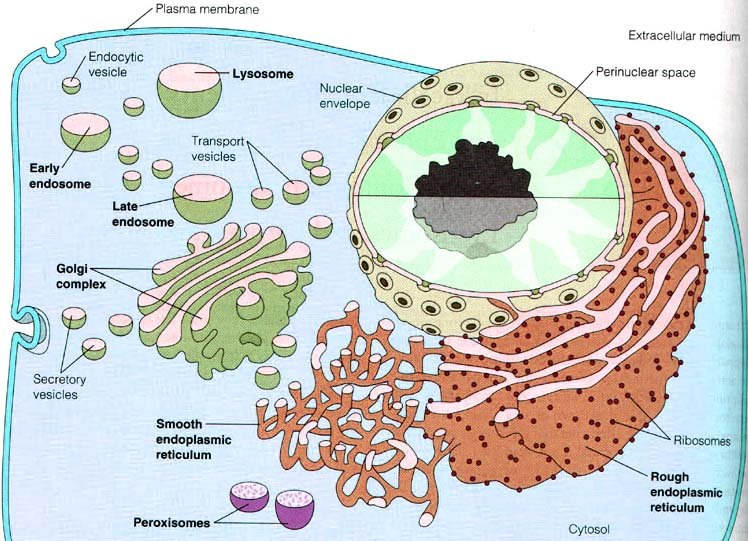
noun
- a small sac or cyst.
- Biology. a small bladderlike cavity, especially one filled with fluid.
- Pathology. a circumscribed elevation of the epidermis containing serous fluid; blister.
- Geology. a small, usually spherical cavity in a rock or mineral, formed by expansion of a gas or vapor before the enclosing body solidified.
noun
- pathol
- any small sac or cavity, esp one containing serous fluid
- a blister
- geology a rounded cavity within a rock formed during solidification by expansion of the gases present in the magma
- botany a small bladder-like cavity occurring in certain seaweeds and aquatic plants
- any small cavity or cell
1570s, from Middle French vesicule, from Latin vesicula, diminutive of vesica “bladder, blister” (see ventral).
n.
- A small structure resembling a bladder.
- A small circumscribed elevation of the skin containing serum.
- A small sac or cyst containing liquid or gas.
- A small fluid-filled sac in the body.
- A membrane-bound sac in eukaryotic cells that stores or transports the products of metabolism in the cell and is sometimes the site for the breaking down of metabolic wastes. Vesicles bulge out and break off from the endoplasmic reticulum and the Golgi apparatus. Vesicles get their energy for mobility from ATP. Lysosomes and peroxisomes are vesicles.
- A small cavity formed in volcanic rock by entrapment of a gas bubble during solidification.
 Liberal Dictionary English Dictionary
Liberal Dictionary English Dictionary